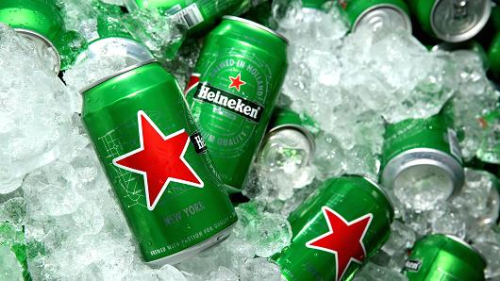Heineken is pouring money into Vietnam, which lags only Mexico on profitability for the Dutch beverage giant, according to the company’s Asia Pacific President Frans Eusman.
Heineken has identified the Southeast Asian nation as the next key driver for its growing APAC business, as it becomes more difficult to squeeze profits from Africa, the Middle East and parts of Europe.
The 143-year-old brewer operates under two company names in Vietnam: APB Hanoi, which is wholly owned, and Vietnam Brewery, in which Heineken has a 60 percent stake.
 “We’re very proud of what we’ve been able to create,” Eusman told CNBC’s “Squawk Box.” “Five years ago, Heineken entered with a very small brewery when Vietnam started to open up. Now we are the number two in Vietnam.”
“We’re very proud of what we’ve been able to create,” Eusman told CNBC’s “Squawk Box.” “Five years ago, Heineken entered with a very small brewery when Vietnam started to open up. Now we are the number two in Vietnam.”
He said Heineken saw opportunities for growth across Asia. It spent $60 million building a brewery in Myanmar in 2015 and also operates in China, India, Cambodia, Indonesia and Malaysia, holding the country’s biggest market share in half of them.
The company recently signed a joint venture with Philippine beverage producer, Asia Brewery, to bring the Heineken and Tiger beer brands to the Philippines, and Eusman hinted that further deals were to come.
Meanwhile, Eusman said that Myanmar was also a “fantastic opportunity.”
“Myanmar, in a way, resembles Vietnam maybe 10 to 25 years ago,” he explained. “It has a huge young population, growing wealth, growing GDP, and more of those people have expendable income.”
He said Heineken saw opportunities for growth across Asia. It spent $60 million building a brewery in Myanmar in 2015 and also operates in China, India, Cambodia, Indonesia and Malaysia, holding the country’s biggest market share in half of them.
The company recently signed a joint venture with Philippine beverage producer, Asia Brewery, to bring the Heineken and Tiger beer brands to the Philippines, and Eusman hinted that further deals were to come.
Meanwhile, Eusman said that Myanmar was also a “fantastic opportunity.”
“Myanmar, in a way, resembles Vietnam maybe 10 to 25 years ago,” he explained. “It has a huge young population, growing wealth, growing GDP, and more of those people have expendable income.”

